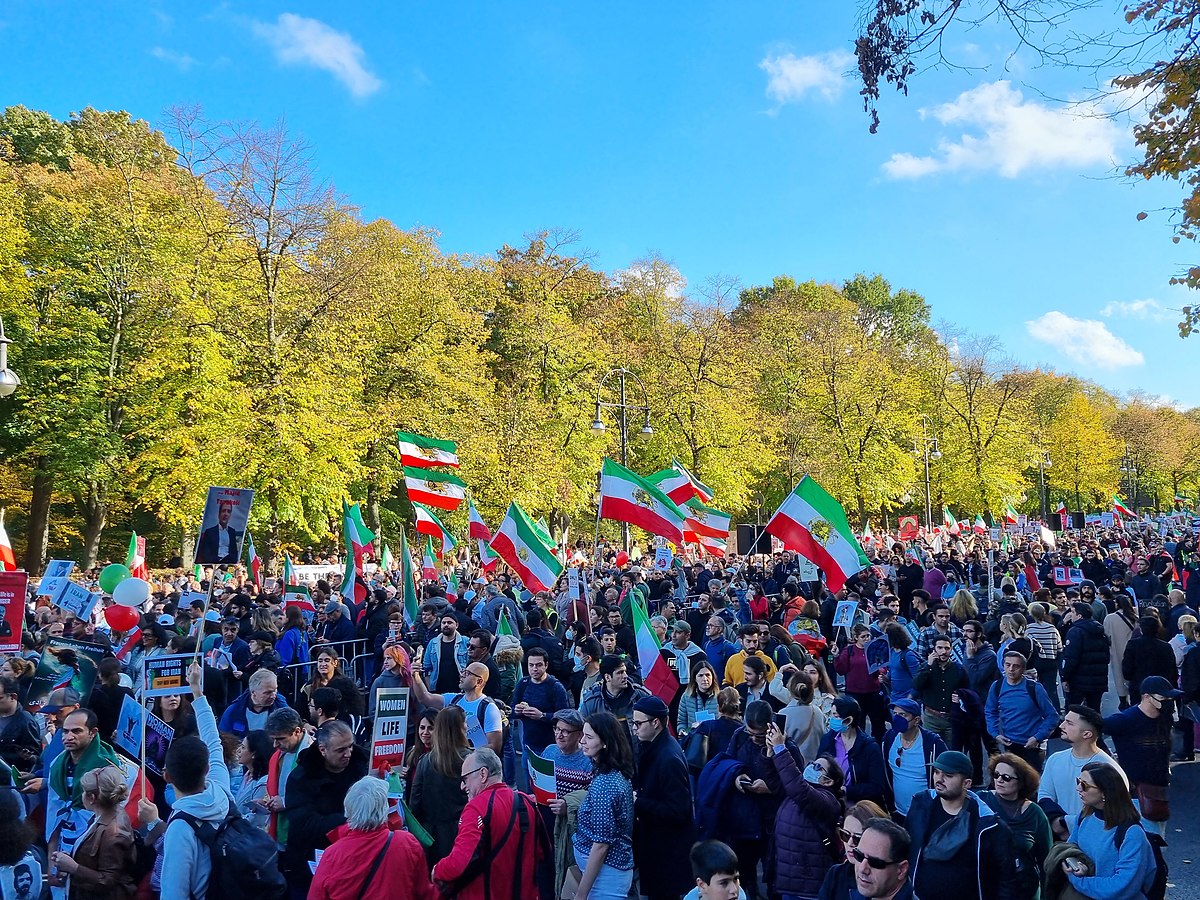Middle East Geopolitics IV: The future of ideological power

Berlin, where crowds protested in solidarity with Iranian protestors, in October 2022.
Jonah Carlson – While we’ve previously discussed Iran’s relationship with its neighbors on the diplomatic level, another factor can play into geopolitics as well: domestic politics. Farnaz Fassihi, a journalist for The New York Times, examines the murder of an Iranian cleric and connects it to Iran’s domestic unrest, which in turn effects the country’s presence on the international stage.
The government of Iran, like all state governments, relies on ideological power to remain in power. Governments use a mix of rationality, history, and tradition to garner a sense of legitimacy, which is needed to properly carry out the demands of governance. Without legitimacy, individuals may be compelled to revolt against the government, demanding either a change of leadership or widespread reform. Such happened in Iran in 1979, when the autocratic regime of Mohammad Reza Pahlavi was overthrown and replaced by Iran’s current theocratic government. Fassihi relates the murder of Ayatollah Abbas Ali Soleimani, killed at the hands of a bank security guard, to the protests sparked by the death of Mahsa Amini last year. In doing so, she reveals that she perceives both events as questioning the ideological power of the theocracy. She notes that the Iranian government indicated that the recent murder did not immediately appear to be in conjugation with any known groups, which may indicate individual disillusionment with the government’s legitimacy. Additionally, Soleimani’s murder was not an isolated incident: Fassihi asserts that attacks on clerics have risen, saying that some have “stopped appearing in public in their clerical garb for fear of being attacked.” One may interpret the rise in attacks as a form of dissent against the Iranian government, with which Shia clerics are commonly associated.
The attacks in Iran, accompanied by last year’s protests, raise questions regarding the Middle East as a region. Given the autocratic nature of many of its neighbors, could dissent in Iran spread to other countries? Furthermore, dissent in Iran may change the way its neighbors perceive it. The recent diplomacy between Saudi Arabia and Iran could be viewed as a move to strengthen the governments of both countries against domestic critics.
Photo source. Amir Sarabadani, CC BY-SA 4.0, via Wikimedia Commons

